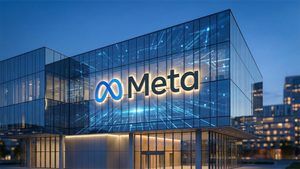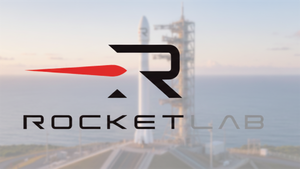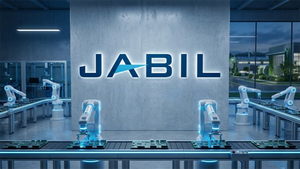bbT369, a dual-targeted (CD79a/CD20) and CBLB gene edited autologous CAR T for non-Hodgkin lymphoma, showed edit-driven enhanced T cell activity in multiple preclinical models
RESET, a novel TCR coupled antigen receptor architecture, displayed markedly increased targeting sensitivity and pharmacologically controlled anti-tumor activity
A novel TGFβ switch receptor drove enhanced MAGE-A4 TCR anti-tumor activity with a favorable safety profile
2seventy bio, Inc. (Nasdaq: TSVT), a leading immuno-oncology cell therapy company, today announced new data featuring novel approaches combining the company’s platform CAR T cell and T cell receptor technology and unique cell therapy engineering capabilities to potentially enhance treatment potency in a range of cancers. The data were shared in three presentations at this year’s American Society of Gene & Cell Therapy (ASGCT) Annual Meeting in Los Angeles, California.
“We’re excited to present new data related to our programs in acute myeloid leukemia, non-Hodgkin lymphoma and solid tumors,” said Philip Gregory, D.Phil., chief scientific officer, 2seventy bio. “These presentations provide further evidence of our focus on generating potent and targeted anti-tumor activity while limiting toxicity through innovative approaches to controlling T cell responses. With this approach, we believe we can augment the tremendous potential of cell-based immunotherapy, with the goal of advancing next-generation treatments targeting a broad range of cancer types.”
bbT369, a dual-targeted and CBLB gene edited autologous CAR T product for non-Hodgkin lymphoma, showed edit-driven enhanced activity in preclinical in vitro and in vivo models
bbT369 is 2seventy’s novel investigational CD79a/CD20 dual-targeting CBLB gene edited CAR T cell therapy for the treatment of patients with relapsed and/or refractory B-cell non-Hodgkin lymphoma (B-NHL). This preclinical study evaluated the role of the CBLB edit across multiple aspects of CAR T cell function compared to unedited controls. In the study, in vitro assays were designed to model known challenges to maximal CAR T cell activity within the tumor, such as chronic activation, antigen downregulation, and immunosuppression.
- The data demonstrated that the CBLB gene edit significantly enhanced the activity of the bbT369 CAR T cells across each of the in vitro model systems tested.
- bbT369 T cells also drove greater T cell expansion and durable tumor control compared with unedited controls in vivo using a xenograft NSG mouse model.
RESET, a novel TCR coupled antigen receptor architecture, showed targeting sensitivity and pharmacologically- controlled anti-tumor activity in models of acute myeloid leukemia
For some tumors, available target antigens lack ideal expression, necessitating improvements in targeting sensitivity, potency, control, and/or exhaustion mitigation to achieve robust anti-tumor efficacy. While classical CAR T cells require high levels of target antigen for maximum activity, the endogenous T cell receptor (TCR) is significantly more sensitive to low target antigen abundance. To address this gap, a novel receptor architecture called RESET (rapamycin-enabled, switchable endogenous TCR) was developed to more closely mimic TCR activation, thus potentially improving T cell killing of low antigen expression tumor cells. RESET combines the antibody-based targeting of CARs, the drug-regulated activity of the DARIC (a rapamycin-regulated CAR) technology and the natural signaling proficiency and inherent sensitivity of TCRs. The RESET receptor comprises two functional units that are designed to enable toggling of RESET T cells between inert and activated states through rapamycin-induced dimerization:
- When challenged with low antigen density tumor cells in vitro, CD33-targeted RESET T cells (RESET33) were more potently reactive to CD33+ tumor cells after rapamycin dimerization, secreting approximately three times more cytokine than CD33-targeted regulated CAR T cells.
- This enhancement was also observed in preclinical NSG mouse models in vivo, where RESET33 T cells more deeply controlled systemic CD33+ AML tumor models, providing a significant survival benefit in comparison to DARIC33 T cells.
A novel TGFβ switch receptor drove robust MAGE-A4 TCR anti-tumor activity with a favorable safety profile
Solid tumors frequently secrete TGFβ, a pleiotropic cytokine that suppresses T cell responses. To counteract the immunosuppressive effects of TGFβ within engineered T cells, a synthetic receptor (CTBR12) was developed to leverage an immunosuppressive cytokine to convert TGFβ binding into pro-inflammatory signaling events that enhance anti-tumor function:
- T cells co-expressing a pairing enhanced MAGE-A4 TCR with the CTBR12 switch receptor demonstrated robust antigen-dependent responses that were significantly enhanced upon exposure to TGFβ, whereas MAGE-A4 TCR controls lacking CTBR12 were suppressed by this anti-inflammatory cytokine.
- CTBR12 co-expression did not alter the safety profile of the MAGE-A4 TCR.
- In two murine xenograft tumor models with abundant TGFβ, T cells co-expressing the MAGE-A4 TCR and CTBR12 both controlled tumors at T cell doses that elicited only minimal responses without CTBR12 co-expression and exhibited superior durability of response overall.
About SC-DARIC33
SC-DARIC33 is an investigational CD33-specific cell therapy that utilizes 2seventy bio’s proprietary Dimerizing Agent Regulated Immunoreceptor Complex (DARIC) T cell platform. SC-DARIC33 is designed as a regulatable, potentially first-in-class autologous T cell therapy and is now being studied at Seattle Children’s in a Phase 1 trial, PLAT-08 (NCT05105152), as a first-in-human investigation of the DARIC T cell platform in relapsed/refractory pediatric and young adult AML.
DARIC separates the antigen binding and signaling functions of a CAR, with the intent that these two components are brought together by the small molecule rapamycin, resulting in a functional CAR construct. In preclinical studies, SC-DARIC33 has shown robust drug-dependent anti-tumor activity (similar to CD19 CAR T controls). Importantly, SC-DARIC33 has been shown to be activated by low non-immunosuppressive concentrations of rapamycin in the blood and, when rapamycin is removed, DARIC returns to an inactive state. SC-DARIC33 tests the hypothesis that a pharmacologically regulated CAR can enable potent AML targeting while limiting toxicities associated with normal myeloid and myeloid progenitor cell targeting.
The investigation of SC-DARIC33 in the Phase 1 PLAT-08 study of pediatric and young adult AML patients and the scientific translation of these data are intended to establish the safety profile of SC-DARIC33 and evaluate feasibility of the reversable modulation (OFF-ON-OFF) of SC-DARIC33.
SC-DARIC33 is not approved for any indication in any geography.
About bbT369
bbT369 is an investigational dual-targeting CAR T cell therapy with a gene edit being evaluated for the treatment of patients with relapsed and/or refractory B-NHL currently being evaluated in a first-in-human Phase 1/2 trial (CRC-403 NCT05169489). bbT369 was purposely designed with three layers of innovation to address the potential mechanisms of anti-CD19 CAR T cell therapy failure, including dual targeting of CD79a/CD20, which is a novel combination of antigens highly expressed in B cell lymphomas, a split co-stimulation signaling technology intended to drive more robust T cell activation, and a gene edit to remove the function of CBLB, a known negative regulator of T cells.
In the 3L+ relapsed and/or refractory B-NHL setting, 60-70% of patients treated with commercially available CAR T cell therapies do not achieve a long-term remission, highlighting a significant unmet clinical need.
In December 2021, the FDA cleared the Investigational New Drug (IND) application for bbT369.
The clinical development program for bbT369 includes the Phase 1/2 CRC-403 study (NCT05169489). Safety and potential efficacy of bbT369 in patients with specific subtypes of relapsed and/or refractory B-NHL will be assessed, including patients who relapsed after CD19 CAR T cell therapy as well as patients who are CAR-naïve.
bbT369 is not approved for any indication in any geography.
About the MAGE-A4 Program
MAGE-A4 is a member of the MAGE family of cancer-testis antigens expressed in a number of solid tumor types. The program employs a highly potent TCR discovered in our MediGene collaboration that recognizes HLA-presented MAGE-A4 peptides and further enhances the potency of these re-directed T cells using our CTBR12 TGFβ “flip” receptor technology -- which converts the immunosuppressive effects of TGFβ into an activation signal for the T cells. Regeneron and 2seventy bio are co-developing the program under their collaboration entered into in 2018.
About 2seventy bio
Our name, 2seventy bio, reflects why we do what we do - TIME. Cancer rips time away, and our goal is to work at the maximum speed of translating human thought into action – 270 miles per hour – to give the people we serve more time. We are building the leading immuno-oncology cell therapy company, focused on discovering and developing new therapies that truly disrupt the cancer treatment landscape.
With a deep understanding of the human body’s immune response to tumor cells and how to translate cell therapies into practice, we’re applying this knowledge to deliver next generation cellular therapies that focus on a broad range of hematologic malignancies, including the first FDA-approved CAR T cell therapy for multiple myeloma, as well as solid tumors. Our research and development is focused on delivering therapies that are designed with the goal to “think” smarter and faster than the disease. Importantly, we remain focused on accomplishing these goals by staying genuine and authentic to our “why” and keeping our people and culture top of mind every day.
For more information, visit www.2seventybio.com.
Follow 2seventy bio on social media: Twitter and LinkedIn.
2seventy bio is a trademark of 2seventy bio, Inc.
Cautionary Note Regarding Forward-Looking Statements of 2seventy bio
This release contains “forward-looking statements” within the meaning of the Private Securities Litigation Reform Act of 1995. These statements include, but are not limited to: statements about our plans, strategies, timelines and expectations with respect to the research, development, manufacture or sale of our product candidates, including the results of ongoing and planned pre-clinical studies and clinical trials; statements about the efficacy and perceived therapeutic benefits of our product candidates and the potential indications, market opportunities and demand therefor; statements about the strategic plans for 2seventy bio and potential corporate development opportunities; and statements about our ability to execute our strategic priorities. Any forward-looking statements in this press release are based on management's current expectations and beliefs and are subject to a number of risks, uncertainties and important factors that may cause actual events or results to differ materially from those expressed or implied by any forward-looking statements contained in this press release, including, without limitation; the risk that our plans with respect to the pre-clinical and clinical development and regulatory approval of our product candidates may not be successfully achieved on the planned timeline, or at all. No forward-looking statement can be guaranteed. Forward-looking statements in this press release should be evaluated together with the many risks and uncertainties that affect 2seventy bio’s business, particularly those identified in the risk factors discussion in 2seventy bio’s Annual Report on Form 10-K, as updated by our subsequent Quarterly Reports on Form 10-Q, Current Reports on Form 8-K and other filings with the Securities and Exchange Commission. The forward-looking statements included in this document are made only as of the date of this document and except as otherwise required by applicable law, 2seventy bio undertakes no obligation to publicly update or revise any forward-looking statement, whether as a result of new information, future events, changed circumstances or otherwise.
View source version on businesswire.com: https://www.businesswire.com/news/home/20230517005230/en/
Contacts
2seventy bio
Investors:
Jenn Snyder, 617-448-0281
jenn.snyder@2seventybio.com
Media:
Morgan (Adams) Shields, 774-313-9852
morgan.adams@2seventybio.com





